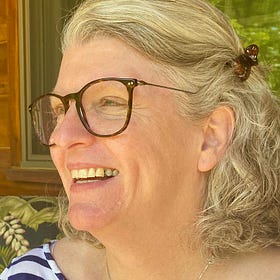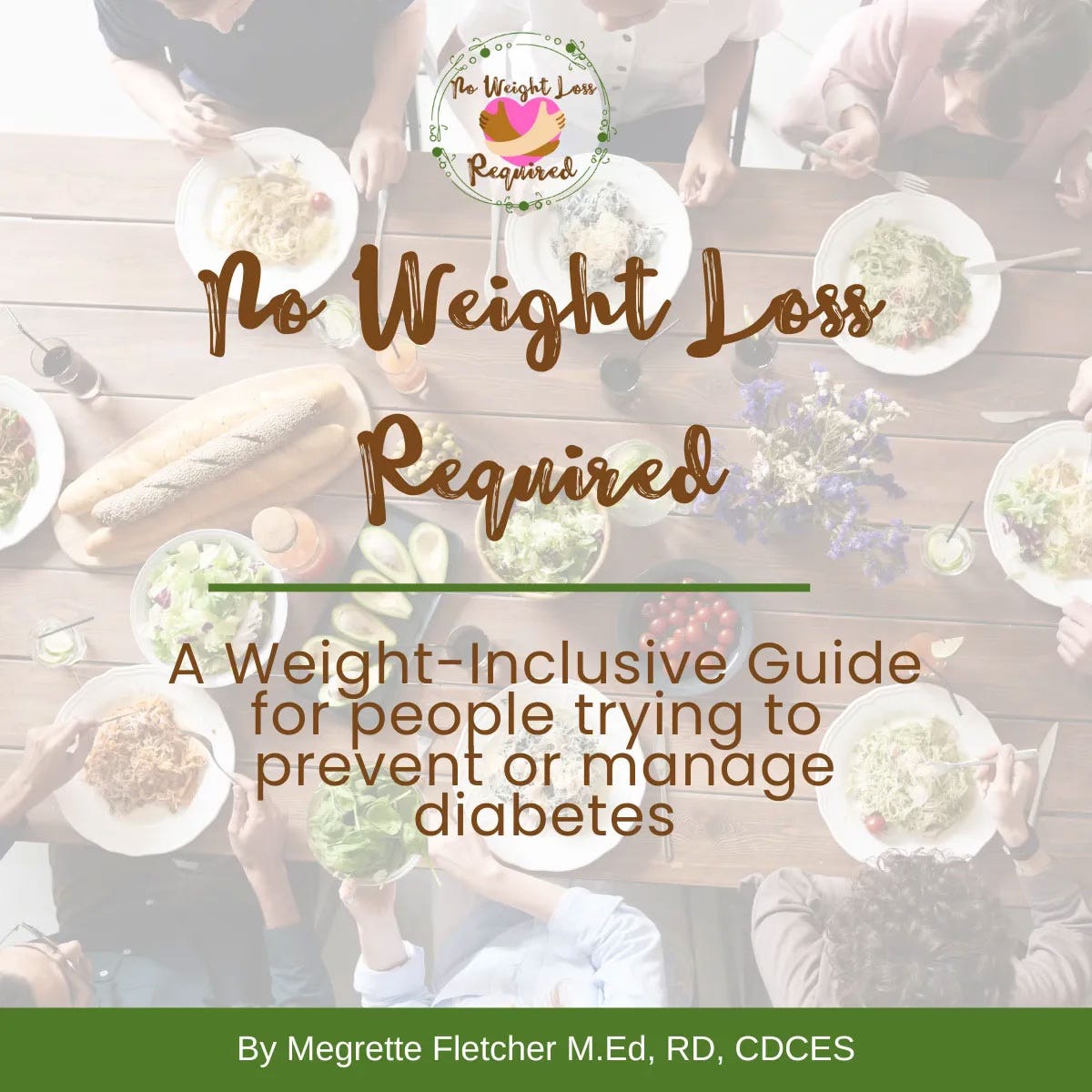A quick take on 'No Weight Loss Required'
Between brain fog, book work, and a bit of a reset, it's been a minute since I’ve written here. I’m back with a quick update and a book that rethinks how we approach diabetes and health.
Hi friends, and welcome new subscribers! You may have noticed, I’ve taken a few weeks off from newsletter writing. The idea was to get laser focused on my book writing. But in truth, I’ve been struggling with general overwhelm and writer’s block (a foreign concept for this former journalist) the past couple of months.
Most of you who have been with me for a while know I’m deep in the thick of perimenopause. At first, it was kind of thrilling to dive into this new territory and learn about these (still relatively unstudied) changes that every woman experiences as she progresses through life. It was a relief to have an explanation for these sudden new symptoms, and even more so when I started hormone therapy and watched some of them disappear, including a few I hadn’t even realized were related to perimenopause.
But over the months, as I’ve adjusted doses and watched some symptoms return (and a few new ones crop up), it’s been frustrating. And sometimes scary. There are days I don’t even recognize myself. I’ve been battling a bit of the blues as I reckon with the perceived limits of my mind—and, let’s get real, how little I seem to accomplish in any given day, especially in comparison to how I used to be.
Brain fog, the most pronounced of my symptoms, is reported to be one of the earliest signs of perimenopause. For me, it’s been showing up as memory issues, losing things, difficulty recalling words (a real problem for a writer), and trouble concentrating, staying on task, staying motivated … really, just staying on top of anything. It’s been a real ass kicking.
For a woman who spent most of her life successfully juggling a full-time career with the demands of motherhood, plus my own outside interests (mountain biking and competitive Olympic weightlifting), it’s brought me to my knees, humbling me on the regular.
But on the upside, it’s forced me to get really good at giving myself grace, something I was only just beginning to learn. It’s also made me reassess my priorities and, in some cases, make some hard decisions in the name of mental health.
A few weeks ago, I realized I needed to pull back on Substack for a bit so I could focus on my bigger priority—writing the book chronicling my experience detoxing from diets after a lifetime of attempting to shrink myself.
I’ll be back with regular weekly updates soon, but for now things will be a bit more sporadic. I’ve had a few rough starts with the book, but I’m starting to feel like I’m finally heading in the right direction (fingers crossed!). Even if it’s not exactly right, it’s the direction I need to go for now.
I’m so grateful for the support I’ve found here, especially from those of you also in perimenopause. I take comfort in knowing this is a process all women go through, and that for at least some of us symptoms eventually ease or disappear. I’d love to hear whether this has been the case with you. Drop me a comment and let me know!
And now moving on to today’s topic …
A refreshing approach to diabetes care: A review of ‘No Weight Loss Required’
Some of you may remember I had the pleasure of interviewing dietitian and diabetes educator Megrette Fletcher last year (the interview was published in January). As someone who spent much of her life identifying as a “broken person,” that conversation had a profound impact on me.
'You're not broken. You don't need to be fixed.'
My wide-ranging interview with dietitian and diabetes educator Megrette Fletcher on what we can do to change how we see ourselves and why weight loss isn't required.
Fletcher is fighting the good fight, advocating for a more compassionate, weight-inclusive approach to managing and preventing diabetes, so I was so excited when she reached out and asked me to review her latest book “No Weight Loss Required: A Weight-inclusive Guide for People Trying to Prevent or Manage Diabetes.” It will be available for free May 6 to anyone who subscribes to her newsletter and will have a wider release after that. (Full disclosure: my newsletter is included in her book’s resources section.)
The book offers a practical introduction to weight-inclusive diabetes care. It can easily be read in one sitting or explored chapter by chapter over eight weeks, with actionable goals and journal prompts throughout.
At its core, “No Weight Loss Required” challenges the default message that weight loss is the only way to manage or prevent diabetes.
Fletcher writes:
“Regular physical activity, managing insulin resistance, and monitoring blood pressure and lipids all matter far more than the absolute number on the scale for long-term outcomes.”
One thing I appreciate about this book is that it isn’t just aimed at those already living with diabetes, but also at those who are prediabetic and those who just want to prevent it. (I know this is a concern for many midlife women who are thinking more intentionally about their health). More broadly, it introduces the concepts of mindful eating and a roadmap for bringing more compassion to the way we approach our own care.
Fletcher makes a compelling case for why extreme “lifestyle” modifications often fail, and how they can actually worsen mental and physical health outcomes. Instead, she presents a more sustainable, non-diet approach rooted in balanced nutrition and mindful eating practices. She outlines the key lab metrics (and typical target ranges) that offer more meaningful measures of health than body weight.
“Weight change is an outcome, not a behavior.”
It’s a powerful statement, and one she returns to more than once in the book—because it bears repeating.
“No Weight Loss Required” is a thoughtful, accessible, and much-needed resource for anyone looking to approach diabetes care, or their own health, with more compassion, less shame, and a greater sense of agency.
It’s your turn 🤔
Have you experienced a shift in how you think about health, weight, or managing conditions like diabetes—maybe as you’ve gotten older, or simply through lived experience?
Feel free to share your thoughts, your story, or even just say hi in the comments—I always appreciate hearing from you.
P.S. – If this post resonated with you, would you consider restacking or sharing it? 🔄





You're wise to begin the hormone balancing act earlier rather than later. I'm from the generation who was given false information about hormone replacement therapy, now debunked. We baby boomers have suffered needlessly without the support of hormones. Then, if it's been more than ten years since taking HRTs, you're told no dice, just live with it. Living with it means brain fog, poor sleep, dry pink parts, weight gain around the middle, and loss of your get-up-and-go, and bone loss. Thank you for your posts. There's always something new to ponder.
Just published a post on perimenopause, I feel you!